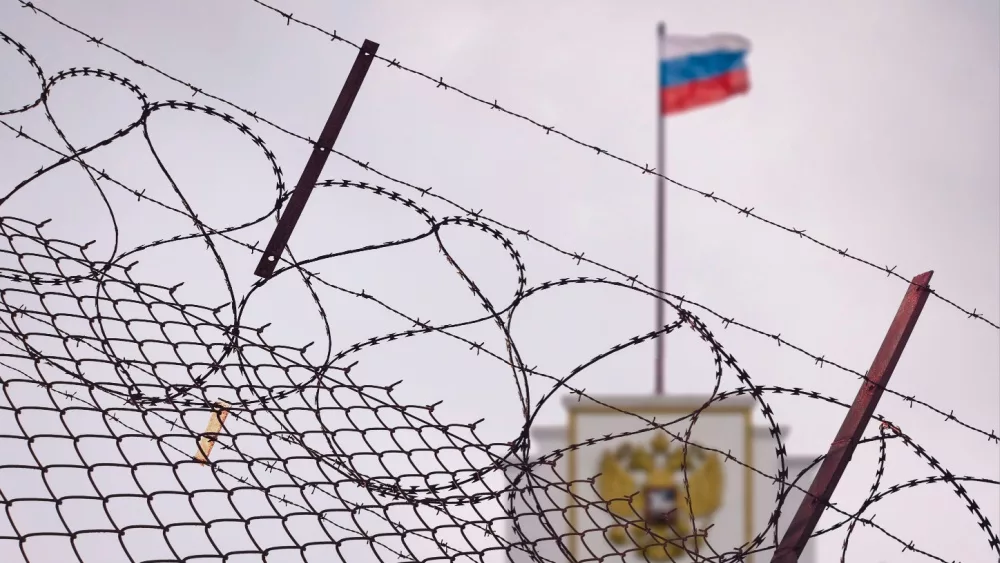On Wednesday, the Departments of Justice and Treasury announced sanctions targeting Russian government-sponsored attempts to manipulate U.S. public opinion ahead of the November election. Attorney General Merrick Garland announced the sweeping crackdown of efforts by the Russian government to influence the upcoming 2024 election through covert networks aimed at spreading disinformation to American voters (per ABC News).
Garland stated: “That law enacted nearly a century ago, was enacted to ensure that the American people were informed when a foreign power engages in political activities or seeks to influence public discourse. The American people are entitled to know when a foreign power is attempting to exploit our country’s free exchange of ideas in order to send around its own propaganda.”
Garland said the State Department would also take separate actions, announcing that the DOJ had unsealed an indictment in the Southern District of New York that charges two employees of the Russian-backed media network RT with conspiring to commit money laundering and to violate the Foreign Agents Registration Act. The defendants — Konstantin Kalashnikov, 31, and Elena Afanasyeva, 27 — are accused of implementing a nearly $10 million scheme to fund and direct a Tennessee-based company to publish and disseminate content that was considered favorable to the Russian government. The company then contracted with U.S.-based social media influencers to share that content on their platforms.
FBI Director Christopher Wray highlighted both foreign and domestic incidents of attempts to influence voters: “RT has used people living and working inside the U.S. to facilitate contracts with American media figures to create and disseminate Russian propaganda here. The content was pitched as legitimate independent news when, in fact, much of it was created in Russia by RT employees who work for the Russian government. The second operation reveals even more malign activities by companies working under the direction and control of the Russian government, companies that created media websites to trick Americans into unwittingly consuming Russian propaganda.”
Garland shared that information was “often consistent with Russia’s interest in amplifying U.S. domestic divisions in order to weaken U.S. opposition to core Russian interests, particularly its ongoing war in Ukraine.” Kalashnikov identified himself as RT’s “Deputy Chief of the Digital Media Projects Department,” and Afanasyeva has identified herself on social media as a “producer at RT, dealing with overseas affairs and news.” Said Garland: “The company never disclosed to the influencers or to their millions of followers as ties to RT and the Russian government. Instead, the defendants and the company claimed that the company was sponsored by a private investor, but that private investor was a fictitious persona.”
The Treasury Department also announced that its Office of Foreign Assets Control had designated 10 people and two entities as part of a “coordinated U.S. government response to Moscow’s malign influence efforts targeting the 2024 U.S. presidential election.” The Treasury Department shared in its announcement of sanctions that RT “used a front company to disguise its own involvement or the involvement of the Russian government in content meant to influence U.S. audiences.” Under the new actions, all property and interests in property of the designated people that are in the U.S. or in the possession or control of Americans are blocked and must be reported to the Office of Foreign Assets Control.
Editorial credit: Melnikov Dmitriy / Shutterstock.com

